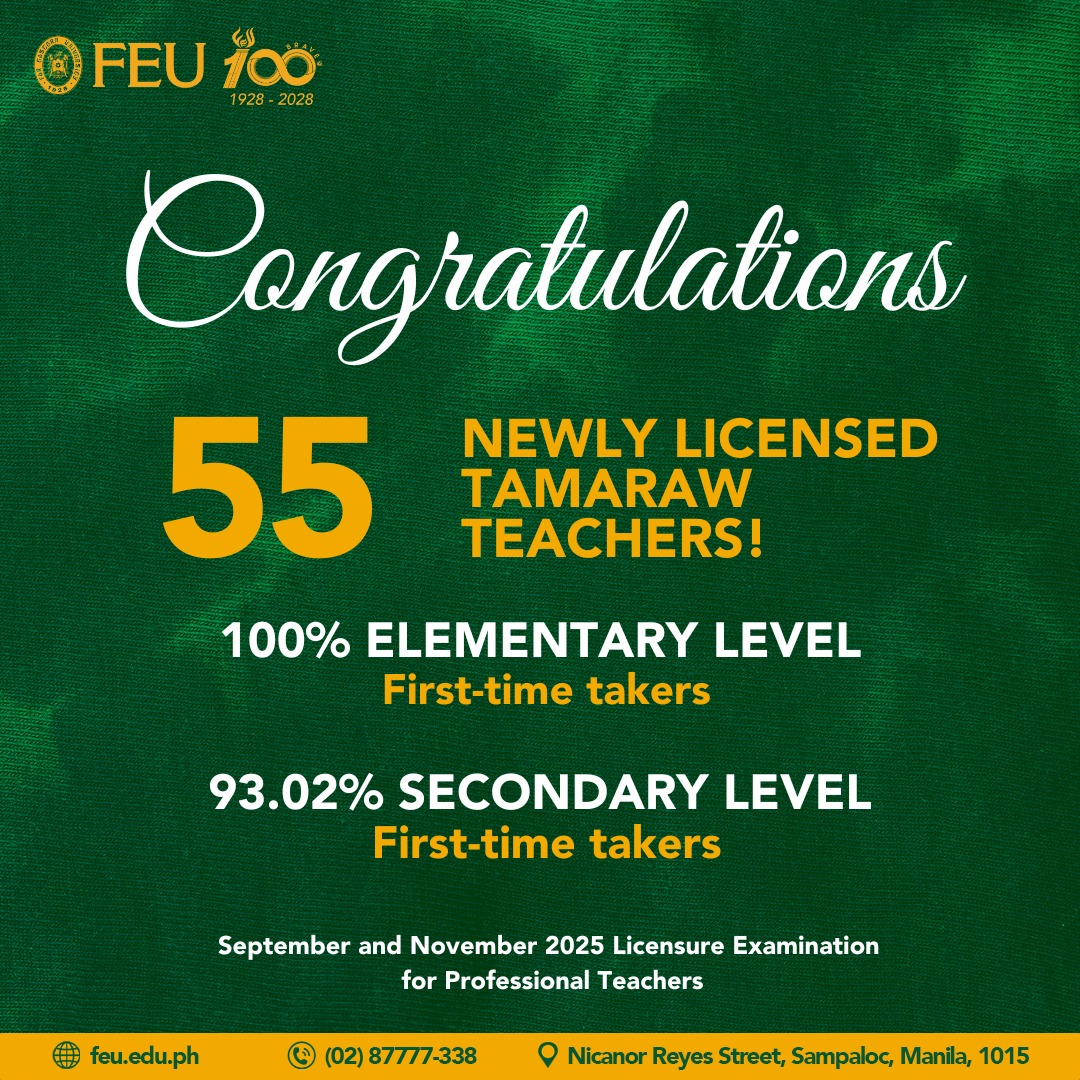This program exhibits a holistic approach in education through the multitude of courses, learning approaches, and assessments it offers.
Program curriculum
In the first two years of the program, General Education (GE) courses focus on developing learners’ foundational skills, such as critical thinking and reflection, through facilitation of liberal education content. General Education courses constantly engage learners in critical discussions.
Moreover, the GE curriculum also includes university-innovative courses, Scholarly Inquiry, College Academic Skills in English (CASE), and Speech Communication, which are designed to develop key college study habits, research, and similar academic skills.
On the other hand, Professional Education (Prof Ed) courses cultivate among students the foundational theories and concepts, pedagogical content knowledge, and experiential learning relevant in learning the art and science of the teaching profession. Building from the foundation skills of General Education courses, Prof Ed courses also engage students in critical discourses on issues and trends in education, and thereby pave the way for further discussion and research on education theory, practice, and research.
Major / specialization courses of the program focus on mastering pedagogical content knowledge in teaching general education subjects in the elementary level. Utilizing the content of the core subjects of basic education and contextualizing pedagogical content knowledge of professional education courses, students of the program are able to conceptualize their teaching and learning paradigms and translate them to relevant and effective education practices in basic education.
Alongside these courses, the Wellness and Recreation Program (WRP), which is a unique innovative-course feature of all undergraduate programs in the University, is offered every semester to ensure that not only the cognitive faculties of students are developed but also their physical fitness and socio-emotional soundness.
Teaching-Learning Approaches
Recognizing the essentiality of knowledge generation and information navigation, the following approaches are embedded in the program to empower students on making informed choices as thinking teacher professionals in the future:
- Student-centered learning approach
In line with the University’s teaching and learning philosophy, the program makes use of student-centered learning approaches throughout its courses to enable students to collaborate and co-construct knowledge with their teachers and classmates. This approach, which is rooted on the learning paradigm of the University, makes use of various learning activities designed to initiate cognitive engagement among students through the practice of critical, reflective, creative, and problem-solving thinking skills.
- Interdisciplinary approach
Avoiding the pitfalls of atomistic learning and single-minded thinking, the program makes use of an interdisciplinary approach where students are able to look at educational and societal trends and issues using different disciplinal lenses. Through the learning experiences brought about by this approach, students are able to make sense of different perspectives and make connections between learnings made in different courses.
Method of teaching each course of the program is informed by research. Likewise, research on different areas of education as required readings are central to the discussions made inside the classroom. Moreover, course capstone projects come in the form of research-based outputs to instill to students the habit of making research-informed choices in teaching and learning.
- Technology-based learning approach
To promote and develop independent learning as well as provide flexibility in terms of learning space, selected courses of the program, in particular, four of the GE courses, utilize a blended learning approach where students spend some course time in classes conducted virtually through the use of the University’s learning management system. Likewise, students are exposed to different technological media in their regular face-to-face meetings in each course in the program.
Assessment and Research
Completion of courses under the program is dependent on the accomplishment of assessment tasks negotiated by the teacher and students in each semester. As the program values student learning not only as a product but also as a process, formative assessments which are conducted during the learning process are done to monitor and give feedback about students’ works. These formative assessments lead to summative assessments which focus on evaluating student learning at the end of the instructional unit and course.
Veering away from traditional paper-and-pencil tests, the program also makes use of authentic and non-traditional assessments to better exhibit learning outcomes intended for the course and the program. This authentic assessment comes in the form of creative capstone projects which serve as a culmination of all relevant learning experiences for the course. Moreover, most of these capstone projects come in the form of research-based outputs to instill in students the habit of making research-informed choices in teaching and learning.
Aside from research-based outputs as capstone projects, two courses of the program are dedicated for students to understand and do research works. The Educational Research (TED1105) and Research in General Education (EED1114) courses focus on understanding and crafting research, in education in general and in teaching general basic education, respectively. Both courses aim for students to produce quality research paper and to enable them to regard research as a way of life in the teaching profession.
Internship
Experiential learning courses immerse students in basic education teaching through the supervision of cooperating teachers from partner schools. Field Study 1 and 2 prepare students to full time internship by allowing them to observe, participate, and assist in teaching and learning planning, implementation, and evaluation.
On the last semester of the program, students engage in full time teaching internship as pre-service teachers under the mentorship of a cooperating teacher from the partner basic education school while being guided at the same time by their respective course facilitator. Moreover, through the pre-service student teacher exchange program, selected and screened pre-service student teachers are given the opportunity to have their practice teaching experience in schools from other Southeast Asian countries.



